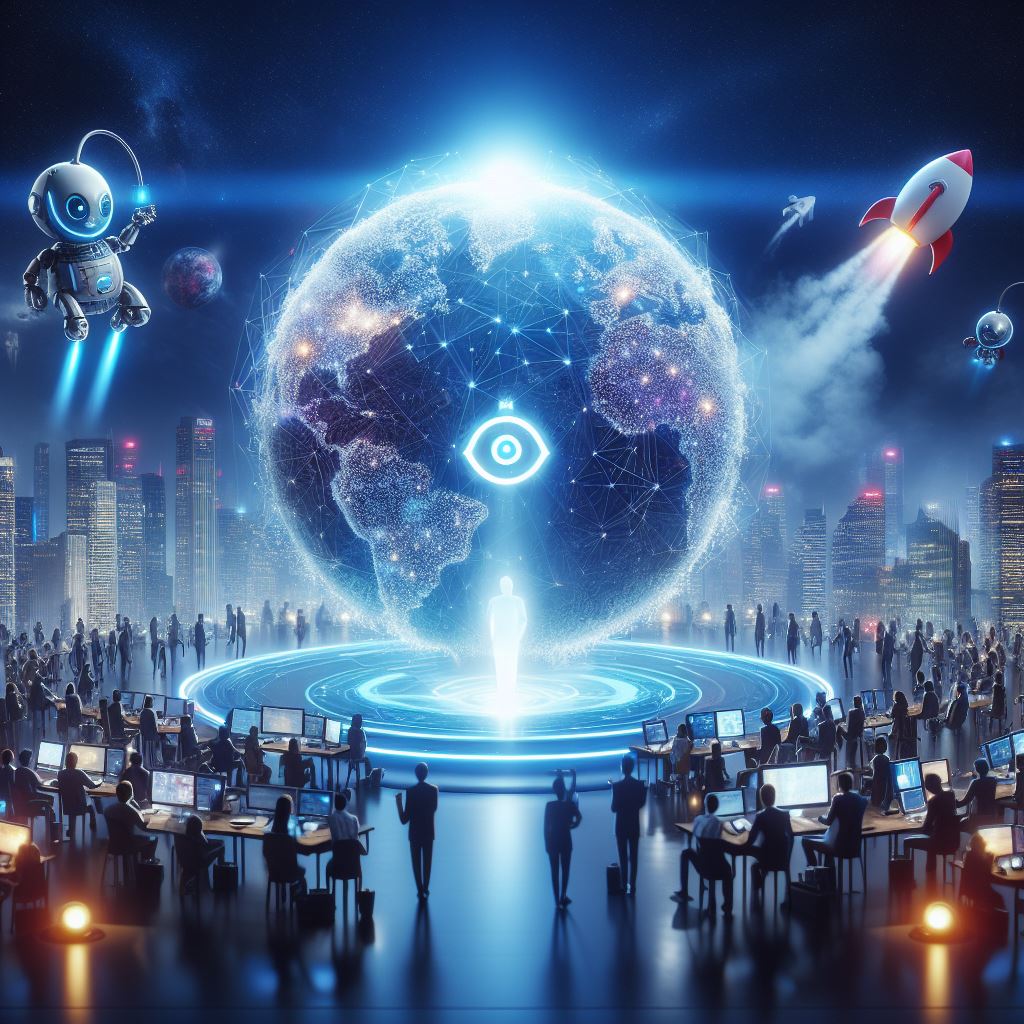- Artificial intelligence (AI) is transforming the world in unprecedented ways, but not without controversy. In recent months, three major events have spotlighted AI, raising questions about its ethical, social, and political implications.
Pakistan’s Imran Khan speaks from prison through AI in virtual rally amid election concerns
- In a first-of-its-kind event, Pakistan’s jailed former prime minister, Imran Khan, used an audio clip generated by artificial intelligence (AI) to address a virtual rally on December 17, 2023. Khan, who was convicted in an asset concealment case and handed a three-year prison sentence, appealed to his supporters to vote for his party, Pakistan Tehreek-e Insaf (PTI), in the upcoming general elections.
- The AI-generated speech was based on Khan’s previous speeches and interviews and used a technology called neural voice cloning, which can mimic the voice and style of a person. The speech was broadcast on social media platforms and received mixed reactions from the public. Some praised Khan for his innovative use of technology, while others criticized him for misleading his followers and violating the election code of conduct.
- The use of AI in political campaigns is not new, but it has become more sophisticated and accessible in recent years. AI can help politicians reach a wider audience, tailor their messages, and analyze voter behavior. However, it can also pose significant risks, such as spreading misinformation, manipulating public opinion, and undermining trust in democracy.
France leads global shift with AI-powered surveillance ahead of 2024 Olympics
- France has become the first country in the European Union to legalize AI video surveillance, ahead of the 2024 Paris Olympics and Paralympics. The law passed on March 24, 2023, will allow authorities to use software to analyze video footage collected from public security cameras, in order to identify potential threats, such as dangerous crowd movements, abandoned bags, and suspicious behavior.
- The law was passed in anticipation of the 2024 Paris Olympics and Paralympics, which will see millions of visitors from outside the city. The government claims that AI surveillance will help ensure the safety and security of the event, as well as prevent terrorist attacks and crime. The law also forbids the use of biometric identification, such as facial recognition, and requires the approval of an independent ethics committee for each AI project.
- However, the law has sparked an outcry from privacy activists, civil society organizations, members of the European Parliament, and lawmakers from France’s left-wing political coalition. They argue that the law vastly expands police power, invades individual privacy and civil liberties, and paves the way for further incursions. They also warn that AI surveillance is prone to errors, biases, and abuses and that it could have lasting impacts beyond the Olympics.
Biden’s stealthy Artificial Intelligence strategy sparks clash with Elon Musk and OpenAI over transparency
- President Joe Biden has been quietly pursuing a stealthy AI strategy, which has sparked a clash with Elon Musk and OpenAI, the company he co-founded, over transparency. Biden’s strategy, which has not been publicly announced, involves investing billions of dollars in AI research and development, creating new AI agencies and initiatives, and collaborating with allies and partners on AI standards and norms.
- Biden’s approach contrasts with that of his predecessor, Donald Trump, who largely ignored AI and left it to the private sector and the military. Biden’s goal is to ensure that the US maintains its global leadership and competitiveness in AI, while also addressing its ethical and social challenges. Biden has also expressed his support for regulating AI, especially in areas such as privacy, security, and human rights.
- However, Biden’s strategy has faced criticism from some of the leading figures in the AI industry, such as Elon Musk and OpenAI. They accuse Biden of being too secretive and cautious, and of stifling innovation and progress. They also demand more transparency and accountability from the government and the military, especially in the development and use of advanced AI systems, such as those that can generate human-like speech, text, and images.

